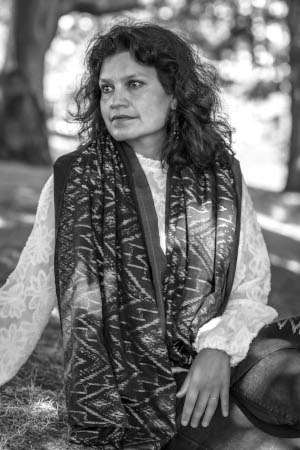David Graeber Memorial Lecture
David Graeber Memorial lecture is co-presented by the Department of Anthropology, London School of Economics; École d'innovation sociale Élisabeth Bruyère, St Paul; Zanîngeha, Rojova; Institute de Ciencias Sociales y Humanidades, Benemérita Universidad Autónoma de Puebla; Anthropology and Social Change, California Institute of Integral Studies.
2nd David Graeber Memorial Lecture 2022
5 April, 2pm Eastern Time.
Register here to attend.
Professor Michael Hardt
Professor of Literature, Duke University

‘Three experiments in dual organization in the 1970s: The Black Panther Party, Autonomia, and Devrimci Yol’
1st David Graeber Memorial Lecture 2021
11 May
Professor Alpa Shah
Department of Anthropology, London School of Economics

‘What if We Selected our Leaders by Lottery? Democracy by Sortition, Liberal Elections and Communist Revolutionaries’
Watch the lecture here:
Watch the YouTube video
Abstract: What if we selected our leaders by lottery? Zooming out from the mud huts of indigenous communities in the forested hills of eastern India, this article compares three different models of leadership and democracy: liberal electoral democracy; Marxist-Leninist Maoist democracy; and democracy by sortition — the random selection of rotating leaders. The significance of sortition is introduced into discussions of democracy in India (showing connections with practices in Nepal and China) as part of a broader attempt to make scholarship on South Asia more democratic. The author also re-reads ideals of leadership among indigenous people, showing that we need a theoretical and practical vision arguing not for societies without leaders but for societies in which everyone may be a leader. In India, this compels us to push back against the critique of its indigenous communities for not producing leaders and enables a profound re-reading of the history of subaltern anti-colonial rebellions. The final aim of the article is to highlight the virtues of the potential of sortition in creating democratic society globally. How we think about democracy and leadership is thus turned on its head to provide a new vision for the future.
Dr Shah’s David Graeber Memorial lecture was published by the journal Development and Change.
A Tribute Series of Events organized by the Department for David Graeber in Michaelmas 2021
To pay tribute to David Graeber we began with the launch of his post-humously published book with David Wengrow, the Dawn of Everything. We also devoted a series of the Department’s flagship Friday Research Seminar on Anthropological Theory to discussing David Graeber’s work. Chaired by Alpa Shah, these events strived to come to terms with our dear colleague and friend’s extraordinary intellectual generosity and optimism. In each session, two anthropologists lead a critical discussion on one of David Graeber’s key gifts of writing, exploring the fissures and cracks, as David liked to, in order to grow our thoughts and actions. The series was also published by the journal Focaal.
Dawn of Everything
David Wengrow (Professor of Archaeology, UCL) in conversation with Alpa Shah (Professor of Anthropology, LSE) about his newly published book with the late David Graeber
Watch the video on YouTube
Lost People
Maurice Bloch (LSE Emeritus Prof Anthropology) and Jonathan Parry (LSE Emeritus Prof Anthropology)
Watch the video on YouTube
Value
Chris Gregory (Australian National University Emeritus Prof Anthropology) and Don Kalb (Bergen Prof Anthropology)
Watch the video on YouTube
Debt
Keith Hart (Goldsmiths Anthropology Emeritus Prof Anthropology) and Maka Suarez (Princeton Institute of Advanced Studies Fellow)
Watch the video on YouTube
Fragments of an Anarchist Anthropology
Keir Martin (Oslo Assoc Prof Anthropology) and Ayça Çubukçu (LSE Assoc Prof LSE Sociology)
Watch the video on YouTube
Myth
Megan Laws (LSE Fellow Anthropology) - Giulio Ongaro (LSE Postdoc Anthropology) and Michael Edwards (Centre of South Asian Studies, University of Cambridge)
Watch the video on YouTube
Bureaucracy
Nayanika Mathur (Oxford Assoc Professor Anthropology) and Michael Herzfeld (Harvard Monrad Research Professor of the Social Sciences)
CANCELLED due to strike action
Bullshit Jobs
Mao Mollona (Goldsmiths Senior Lecturer Anthropology) and Andrew Sanchez (Cambridge Associate Professor Anthropology)
Watch the video on YouTube